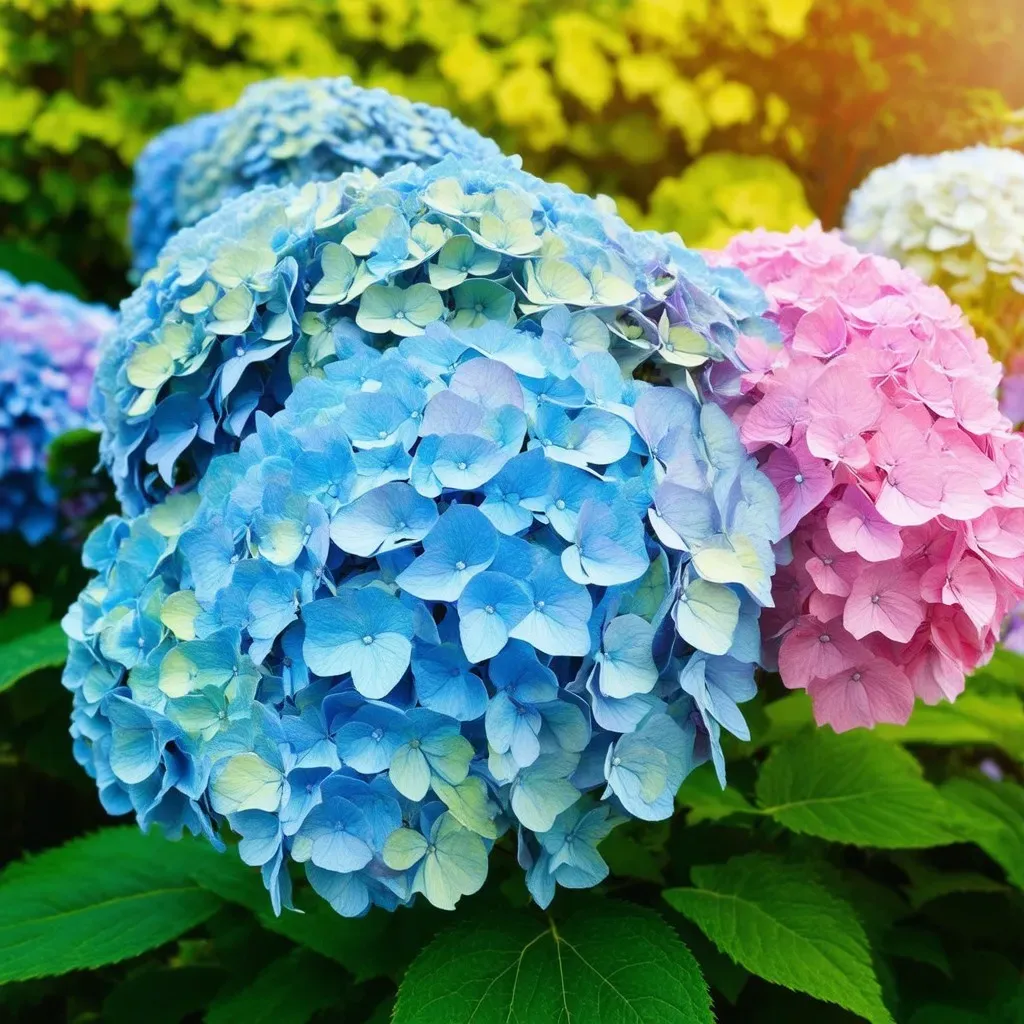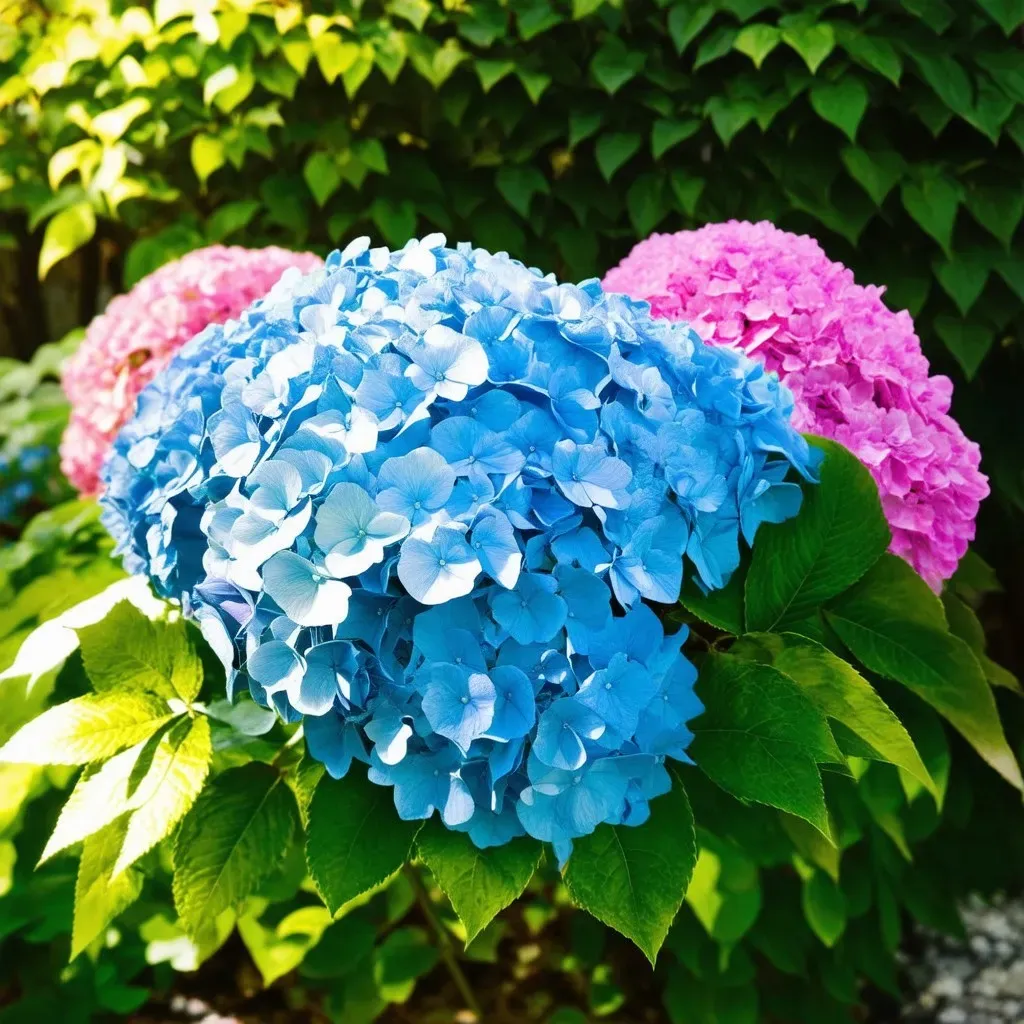When does hydrangea tree bloom? Hydrangea trees typically bloom from late spring through summer, with their peak blooming period occurring between June and July. The exact timing may vary depending on the specific variety of hydrangea and the local climate conditions.
Understanding Hydrangea Tree Varieties
Hydrangeas are delightful flowering plants beloved for their large, colorful blooms. Many gardens feature both hydrangea trees and shrubs, each offering its unique charm. Hydrangea trees, often referred to as standard hydrangeas, are essentially hydrangea shrubs pruned into a tree-like shape. They are easy to care for and can make a beautiful focal point in any garden. Here, we’ll explore some key varieties of hydrangea trees and their blooming characteristics.
Popular Hydrangea Tree Varieties
| Hydrangea Varieties | Bloom Season | Height | Sun Requirements |
|---|---|---|---|
| Limelight Tree Hydrangea | June to September | 6 to 8 feet | Full sun to partial shade |
| Hydrangea Paniculata | June to September | 5 to 10 feet | Full sun to partial shade |
| annabelle hydrangea | June to August | 3 to 5 feet | Full sun to part shade |
| Quick Fire Hydrangea | June to August | 3 to 7 feet | Full sun |
Factors Influencing Bloom Time
-
Climate:
Hydrangea trees in warmer climates tend to bloom earlier than those in cooler regions. This is primarily due to the warmer temperatures accelerating growth. -
Variety:
As mentioned earlier, different hydrangea varieties have different blooming periods. Some, like the Limelight tree hydrangea, are late bloomers, showcasing their flowers from June to September. -
Pruning:
The way you prune hydrangea trees can affect blooming. Pruning in late winter to early spring can reduce blooms for some varieties, while Others may bloom profusely if properly pruned. -
Age of the Plant:
Typically, younger hydrangeas (those under three years old) may not bloom at all for the first couple of years. They generally start blooming from their third year onward. -
Weather Conditions:
Unusual weather—like late frosts or dry spells—can delay or promote blooming. For instance, a warm spring may lead to earlier blooms.
Care Tips for Hydrangeas
Hydrangeas are relatively easy to care for, needing basic, yet essential maintenance to thrive and reach their full blooming potential. Here are some tips for ensuring maximum blooms:
-
Location:
Hydrangeas grow best in locations that receive at least four hours of sunlight daily. Full sun can promote robust flowering, but in hotter climates, some shade during the midday can protect the plant.
-
Soil:
Ensure the soil is well-drained and rich in organic material. Aim for a slightly acidic to neutral soil pH for the best growth. -
Watering:
Hydrangeas require consistent moisture, especially during the blooming season. It is advisable to check the soil regularly to avoid both under-watering or over-watering. -
Fertilization:
Fertilize hydrangeas in early spring with a balanced fertilizer (6-6-6 or 8-8-8) to promote healthy growth and more blooms later in the season. -
Mulching:
A layer of mulch around the base of the plant helps retain moisture, regulate soil temperature, and suppress weeds.
FAQs
When do Hydrangea Trees Bloom?
Hydrangea trees typically bloom from late spring to summer, with peak blooming in June to July.
How tall do Hydrangea Trees get?
Most hydrangea trees can grow anywhere from 3 to 10 feet tall, depending on the variety.
What conditions do Hydrangeas prefer?
Hydrangeas prefer well-drained soil, at least four hours of sunlight, and consistent moisture levels.
Can you plant a Hydrangea Tree in the shade?
While hydrangeas thrive in full sun, partial shade can help extend the blooming period, especially in hotter climates.
Summary of Care Chart
| Aspect | Recommendation |
|---|---|
| Sunlight | 4 hours minimum, ideally full sun |
| Watering | Consistently moist, but well-drained |
| Soil | Rich, well-drained, slightly acidic |
| Fertilization | Balanced fertilizer in early spring |
| Pruning | Late winter to early spring for some |
Additional Insights
When considering what variety of hydrangea to plant, be mindful of the growth and bloom time of each type. Limelight hydrangeas, for instance, are known for their stunning lime-green blooms that transition to pink as summer progresses. They stay vibrant until late fall, making them an excellent choice for gardeners seeking extended color in their landscapes.
Resources for Hydrangea Care
For further reading on hydrangea tree care and blooming, visit Plant Addicts which offers comprehensive guides and tips from gardening experts.

By following these essential tips and understanding the blooming characteristics of different hydrangea tree varieties, you can ensure that your garden bursts with color during the blooming season. Celebrate the enchanting beauty of hydrangeas and enhance your outdoor space with their spectacular display.


